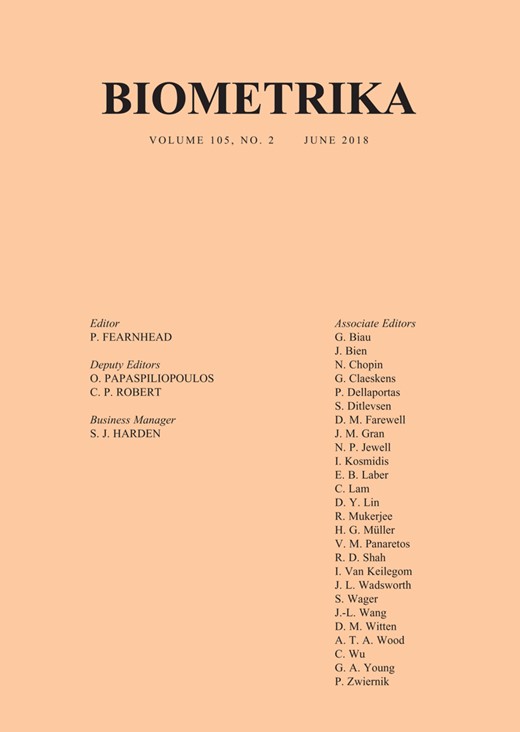-
Views
-
Cite
Cite
Guoqing Diao, Donglin Zeng, Chunlei Ke, Haijun Ma, Qi Jiang, Joseph G Ibrahim, Semiparametric regression analysis for composite endpoints subject to componentwise censoring, Biometrika, Volume 105, Issue 2, June 2018, Pages 403–418, https://doi.org/10.1093/biomet/asy013
Close - Share Icon Share
SUMMARY
Composite endpoints with censored data are commonly used as study outcomes in clinical trials. For example, progression-free survival is a widely used composite endpoint, with disease progression and death as the two components. Progression-free survival time is often defined as the time from randomization to the earlier occurrence of disease progression or death from any cause. The censoring times of the two components could be different for patients not experiencing the endpoint event. Conventional approaches, such as taking the minimum of the censoring times of the two components as the censoring time for progression-free survival time, may suffer from efficiency loss and could produce biased estimates of the treatment effect. We propose a new likelihood-based approach that decomposes the endpoints and models both the progression-free survival time and the time from disease progression to death. The censoring times for different components are distinguished. The approach makes full use of available information and provides a direct and improved estimate of the treatment effect on progression-free survival time. Simulations demonstrate that the proposed method outperforms several other approaches and is robust against various model misspecifications. An application to a prostate cancer clinical trial is provided.



